Review: Star-Studded RAGTIME Heralds Nashville Repertory Theatre's Return to Live Performance
Artful Blend of Nashville Theater Royalty and Newcomers Bring Show to Life With Exuberance
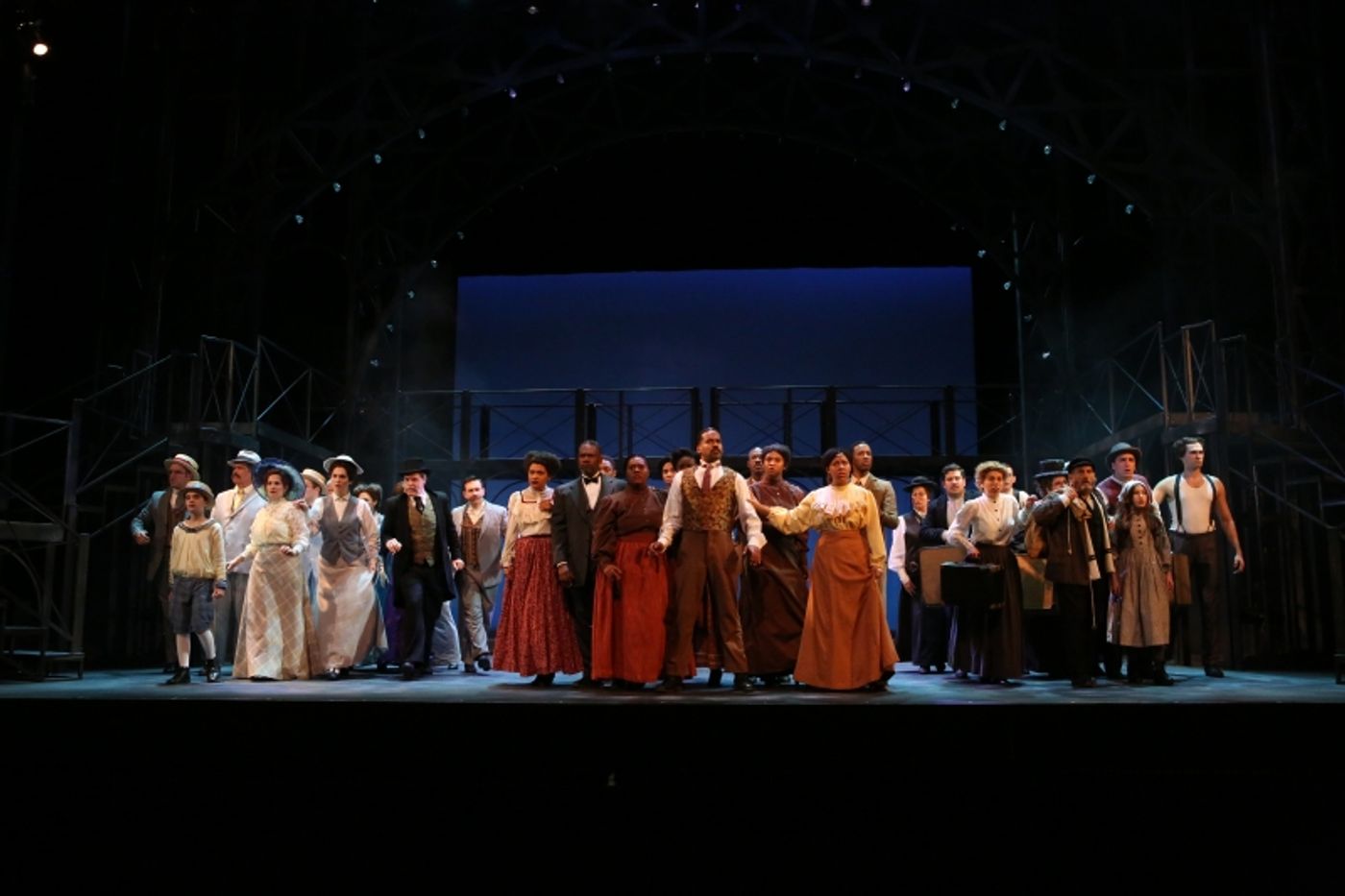
Ragtime, the Tony Award-winning musical about life in these United States during the very early years of the 20th century, is a richly drawn and evocatively told rumination on the pursuit of the American dream seen from the perspective of a diverse, multi-ethnic cast of characters. Now onstage through Sunday at the Tennessee Performing Arts Center's James K. Polk Theatre, in a glittering and sumptuous revival from Nashville Repertory Theatre, Ragtime proves an ambitious choice for the company's return to live performance after more than 18 months of darkness due to the Covid-19 pandemic.
The story, as passionate and heartfelt as any written for the musical theater over the past almost 100 years (if one considers 1927's Show Boat the progenitor of the uniquely American theatrical endeavor that fuses a libretto with musical numbers together in order to entertain and to elucidate an audience looking for more than frothy, frivolous diversions from beyond the footlights), is universally compelling and remains almost shockingly relevant, particularly now in the aftermath of social upheaval as our society comes to terms with its racist, xenophobic past while battling against the same forces that seek to preserve the status quo of prejudice and white privilege.
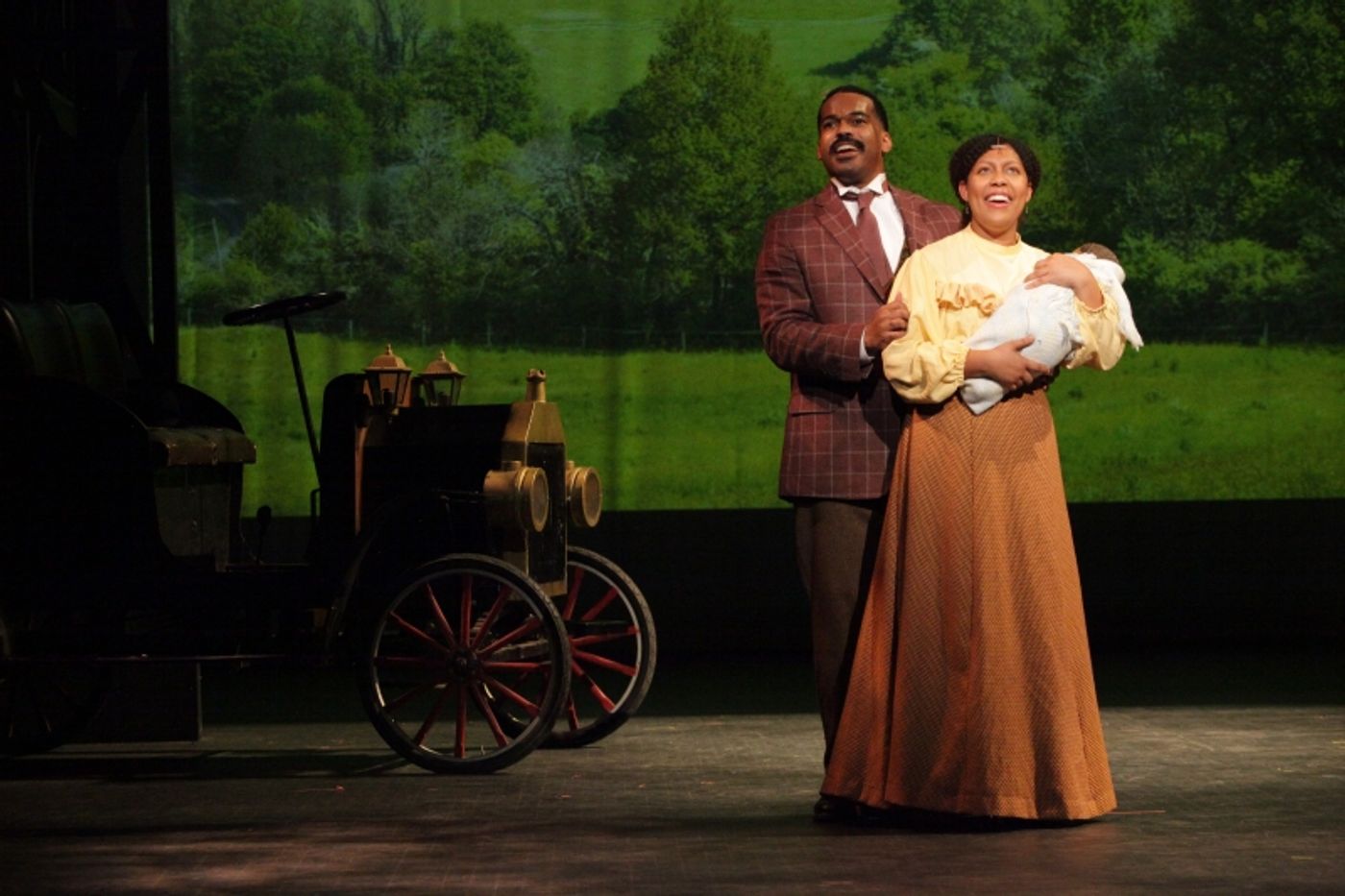
Featuring a sweeping musical score composed by Stephen Flaherty, which incorporates various musical idioms that are a perfect blend of popular culture and musical theater tropes, with lyrics by Lynn Ahrens that somehow encapsulate the hopes and dreams of multitudes of people who have viewed America as a land of opportunity, and a book by Terrance McNally that artfully condenses E.L. Doctorow's sprawling 1975 novel into a captivating and intriguing tale in which everyone may catch of glimpse of their forebears, Ragtime is a hugely challenging undertaking for any theater company at any time. Yet, Nashville Rep's decision to claim Ragtime as the vehicle for the company's return to centerstage seems particularly prescient and thoroughly ambitious, even if there are elements in the musical that may cause consternation in 2021.
Directed by Micah Shane Brewer, featuring musical direction by Dave Ragland and choreography by Tosha Marie - all in their Nashville Rep debuts - and with vocal direction by Randy Craft and the combined design capabilities of the Rep's seasoned team of professionals (including scenic designer Gary Hoff, costume designer Lori Gann-Smith, lighting designer Darren Levin, sound designer Nivedhan Singh and projections designer Cody Stockstill), Ragtime is visually stunning, sumptuously outfitted and painstakingly crafted. With a return to the Polk Theatre (which was Nashville Rep's home during much of the 1980s and '90s) and its hallmarks of a proscenium stage and a sense of grandeur that is lacking in a nonetheless more adaptable black box theater (such as TPAC's Johnson Theatre, which now serves primarily as Nashville Rep's performance venue), Ragtime emerges from the cloistered confines of an elegant jewel box that seems more apropos for a show of its rather rarefied theatrical lineage.
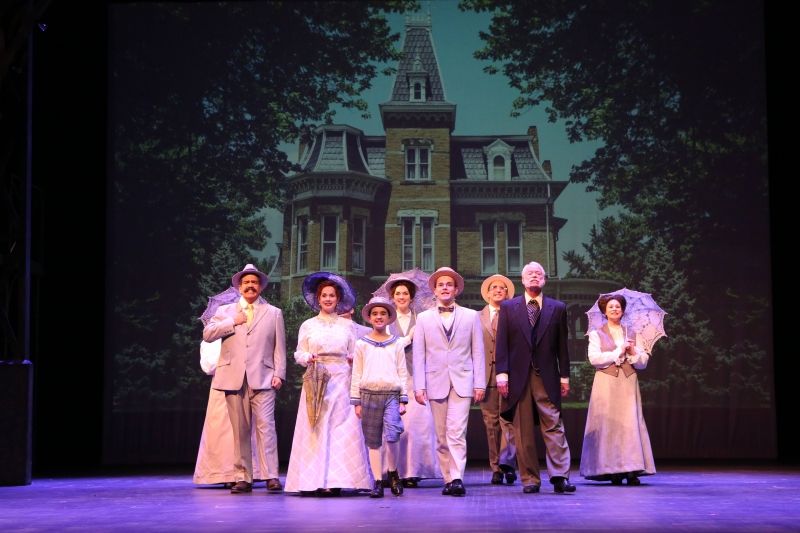 Certainly, there is about Ragtime a profound sense of literary gravitas: in his original novel that serves as the basis for the musical's book, Doctorow weaves an intricate tale of various and sundry fictional characters - representative of the well-heeled white denizens of New Rochelle, New York, the emerging African-American social classes thriving in Harlem and the arriving immigrants from Europe seeking to redefine themselves by establishing new identities in a promising, if daunting, new world - that is punctuated by the appearance of real personalities of the particular times in which Ragtime is set, including Evelyn Nesbit, Harry Houdini, Henry Ford, Booker T. Washington, Emma Goldman and J.P. Morgan among others.
Certainly, there is about Ragtime a profound sense of literary gravitas: in his original novel that serves as the basis for the musical's book, Doctorow weaves an intricate tale of various and sundry fictional characters - representative of the well-heeled white denizens of New Rochelle, New York, the emerging African-American social classes thriving in Harlem and the arriving immigrants from Europe seeking to redefine themselves by establishing new identities in a promising, if daunting, new world - that is punctuated by the appearance of real personalities of the particular times in which Ragtime is set, including Evelyn Nesbit, Harry Houdini, Henry Ford, Booker T. Washington, Emma Goldman and J.P. Morgan among others.
The tapestry woven by Doctorow's work is made more vivid, more colorful and, quite frankly, more interesting by playwright McNally who brings the various threads together with a musical plotline that holds audiences in its utter thrall from the show's opening number - the beautifully haunting "Ragtime" that introduces us to the many characters who populate the work - all the way to its beatific and hopeful ending, "Make Them Hear You," that manages to transform the bleak and horrific events just witnessed into something more uplifting and aspirational.
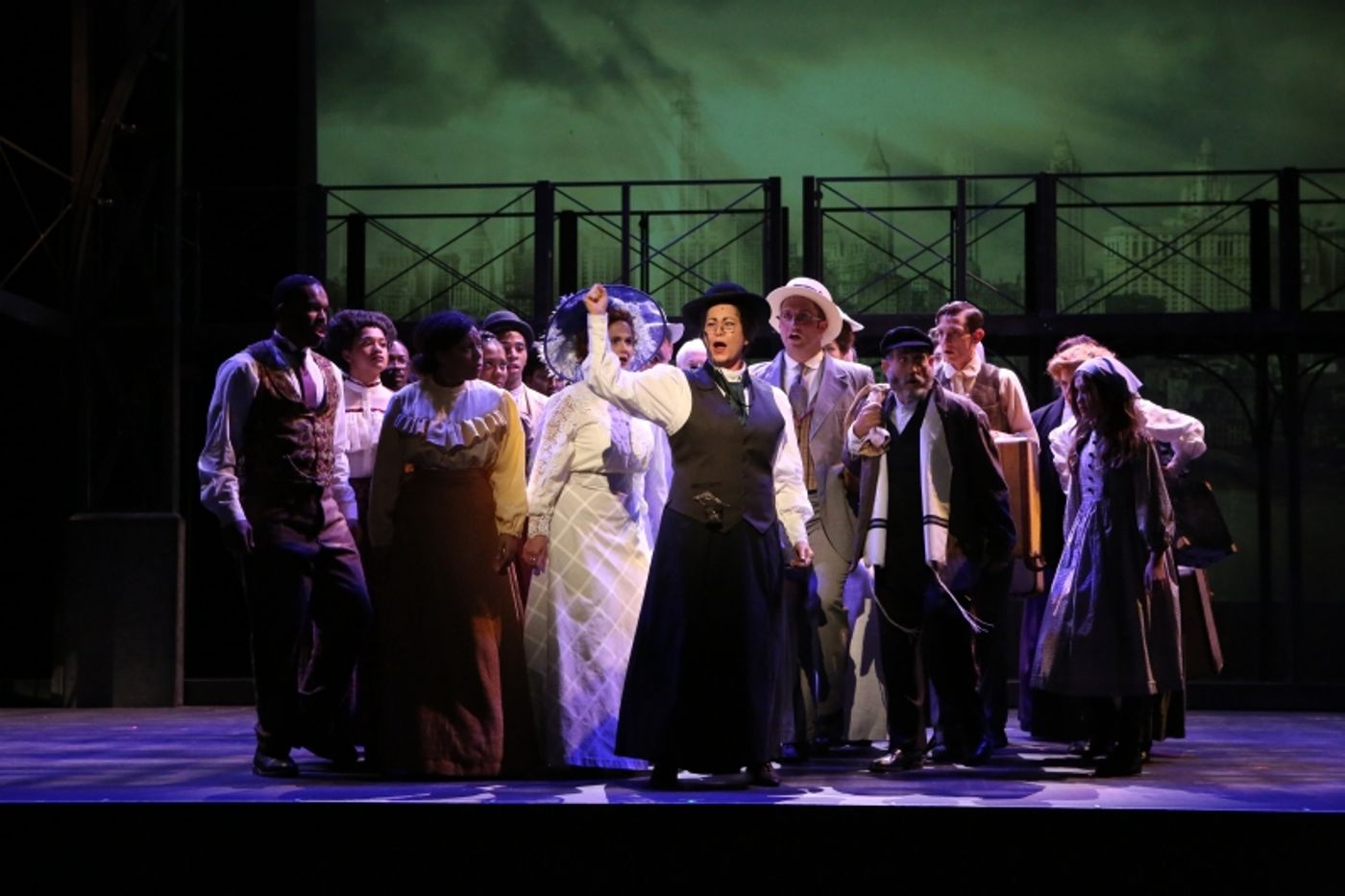
Brewer's outstanding 35-member cast for Ragtime features a similarly artful blending of local stage veterans with a bevy of newcomers who together bring the show to life with enthusiasm and ardor. Nashville theater royalty is represented by Megan Murphy Chambers as Mother, Justin Marriel Boyd as Coalhouse Walker Jr., Galen Fott as Father, Garris Wimmer as Tateh, Matt Carlton as Henry Ford, Nancy Allen as Emma Goldman, Bakari King as Booker T. Washington, Geoffrey Davin as J.P. Morgan and Galen Crawley as Evelyn Nesbit, and an ensemble led by such local luminaries as Shawn Whitsell, Mariah Parris, Hatty Ryan King, LaDarra Jackal and Gerold Oliver - truly an embarrassment of theatrical riches - while new faces belonging to the likes of Shelby Denise Smith (Sarah), Steven McCoy (Younger Brother), Wood Van Meter (Harry Houdini), Kortney Ballenger (Sarah's Friend) and Kambri King (who plays the adorable young Coalhouse in the show's epilogue) bring a decidedly different energy and tone, leavened by comparable intensity, to the proceedings.
As a result, the various performances in Ragtime are exceptional. Murphy Chambers is lovely as the compassionate Mother, and her soaring rendition of "Back to Before" very nearly stops the show late in Act Two. Murphy Chambers has never been more beautiful nor has she ever shown more stage presence as she does in this production. Her onstage chemistry with Fott, who manages to create a multi-dimensional character from one written rather singularly, and Wimmer (as the Latvian-born Jew who rises to prominence in the early days of the film industry based on the east coast) is palpable and the relationships of the three are richly etched and authentically acted. As Tateh, Wimmer is given the opportunity to put the entire range of his estimable talents on display and he does not disappoint, creating a character who is achingly real and endearingly accessible.
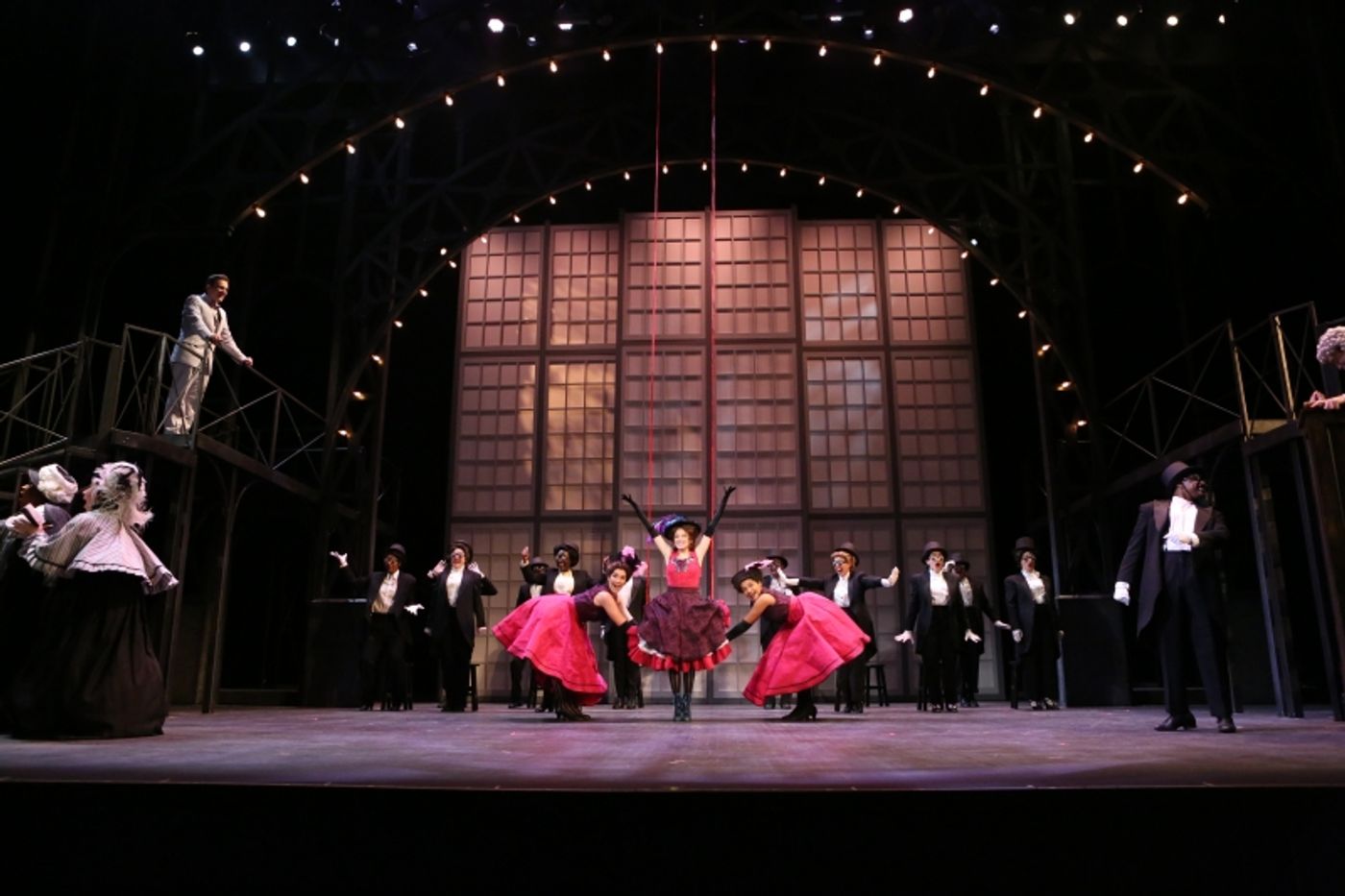
Boyd has never been in finer voice than he is as Coalhouse and he slips on the cloak of his character with a certain ease that proves his suitability for the role. His soaring vocals on "Wheels of a Dream" are ideally matched by the beauty of Shelby Denise Smith's voice, which is mature and confident beyond her years (she is a sophomore at Nashville's Lipscomb University and her vocal artistry is awe-inspiring) and her "Your Daddy's Son" is powerful.
Crawley is delightful as Evelyn Nesbit, the vaudeville star who came to her fame as the result of her role in the "crime of the century" (the murder of architect Stanford White by Nesbit's insanely rich husband Harry K. Thaw) and she projects a sense of ennui even while appearing deliriously vapid and vacuous. Likewise, Van Meter cuts a striking figure as Harry Houdini, the small-time magician who made a name for himself as an escape artist, and together with Crawley, the pair perfectly represent the American public's penchant for tabloid sensationalism that still continues to reverberate.
Ballenger makes the most of her time in the spotlight to deliver a soul-stirring version of "Till We Reach That Day" that swells with import as she is joined by the entire company for the Act One finale.
Yet among the many notable actors in Brewer's cavalcade of stars, perhaps the two most startling performances are the ones from Steven McCoy, as Younger Brother, and Nancy Allen, as Emma Goldman, both of whom take their first steps onto the stage as fully conceived characters and remain remarkably focused and amazingly accessible throughout the three hours of onstage action. Their scenes together - including "The Night That Goldman Spoke in Union Square" and "He Wanted to Say" - are filled with passion and fiery zealotry that fuels their performances with consummate artistry. Indeed, they provide the show's most memorable moments with understated grace and the utmost attention to detail. Brava and bravo.
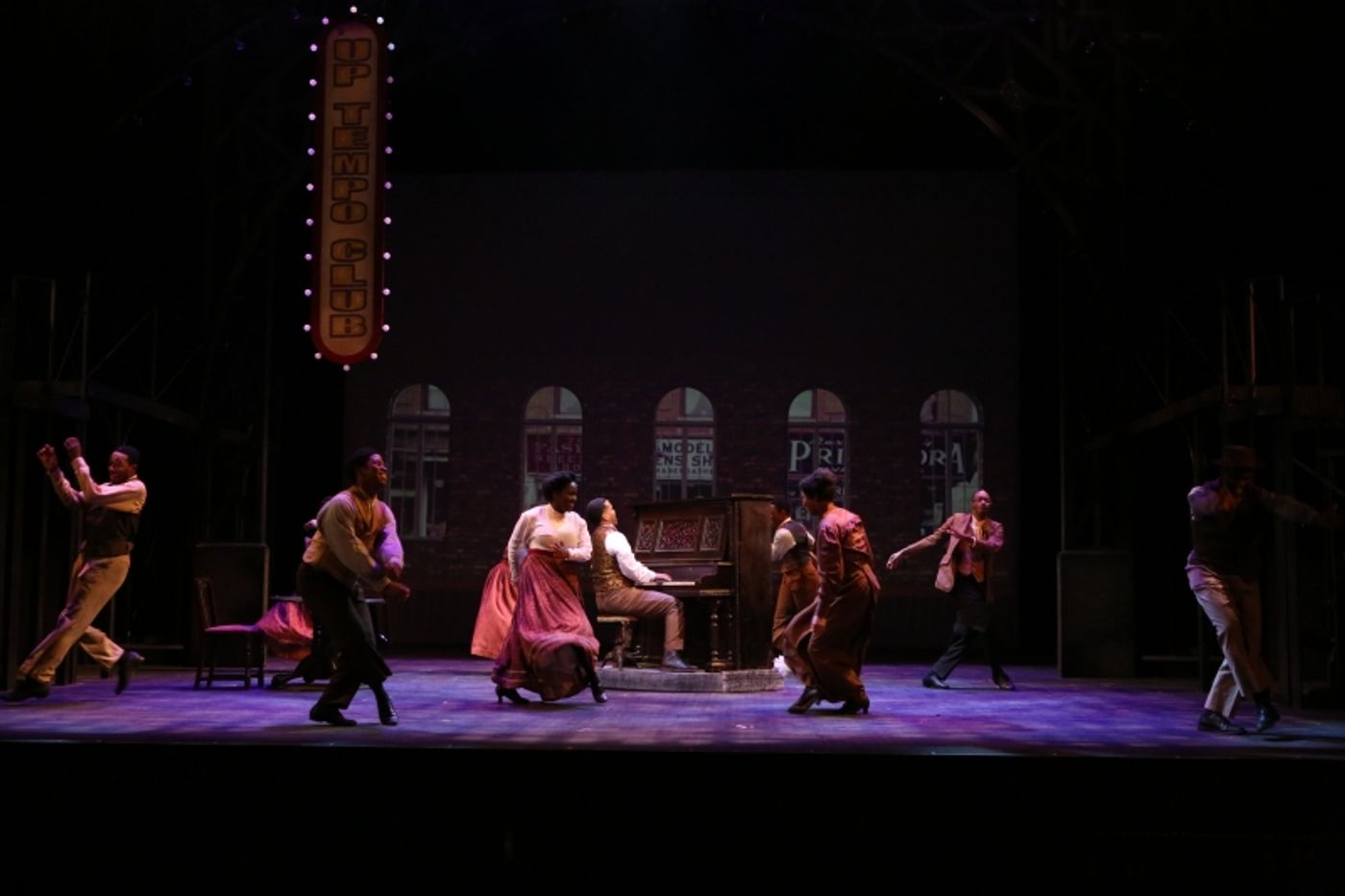
Ragland's 15-member orchestra perform the show's glorious music with precision and skill - Flaherty's score has never sounded better - and Tosha Marie's choreography showcases her versatility as she provides dramatic movement and exuberant dance in equal measure to help the story along its circuitous route.
Hoff's set is a massive undertaking in its own right and provides the musical with its eye-popping settings from a suburban home to a Harlem juke joint, from New Rochelle to Atlantic City. Levin's exquisite lighting design frames the onstage action with a rich glow that adds a sense of drama to the proceedings, while Stockstill's projections set the scene for the production's turn of the century milieu. Gann-Smith's costumes clothe the characters in period-perfect fashion.
At the performance reviewed, which was a preview prior to opening night, some production kinks were still being worked out, not the least of which was Singh's sound design, which proved problematic. Yet we feel certain (or at least we hope so) they were handled in time for opening night audiences to enjoy Ragtime to full effect.
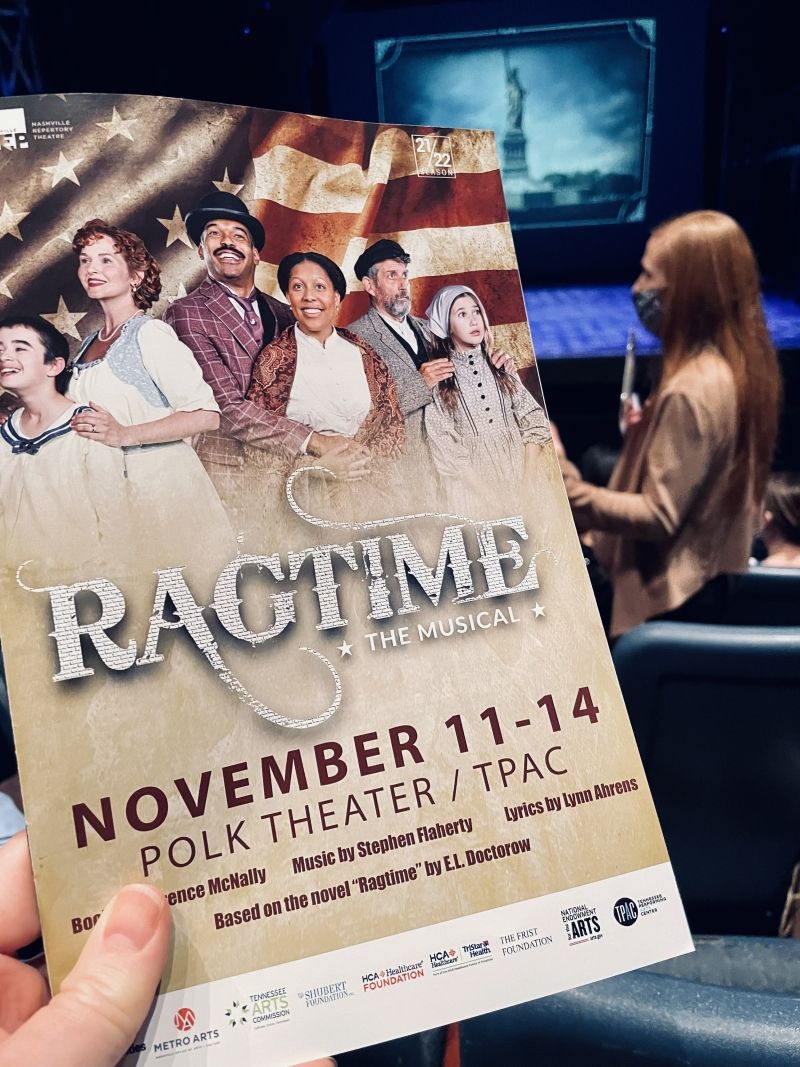 Ragtime. Book by Terrance McNally. Music by Stephen Flaherty. Lyrics by Lynn Ahrens. Based on the novel Ragtime by E.L. Doctorow. Directed by Micah-Shane Brewer. Musical direction by Dave Ragland. Choreographed by Tosha Marie. Vocal direction by Randy Craft. Stage managed by Cecilia Lighthall. Presented by Nashville Repertory Theater. At TPAC's James K. Polk Theatre, Nashville. Through November 14. For details, go to www.nashvillerep.org or call (615) 742-4040 for tickets. Running time: 3 hours (with one 15-minute intermission).
Ragtime. Book by Terrance McNally. Music by Stephen Flaherty. Lyrics by Lynn Ahrens. Based on the novel Ragtime by E.L. Doctorow. Directed by Micah-Shane Brewer. Musical direction by Dave Ragland. Choreographed by Tosha Marie. Vocal direction by Randy Craft. Stage managed by Cecilia Lighthall. Presented by Nashville Repertory Theater. At TPAC's James K. Polk Theatre, Nashville. Through November 14. For details, go to www.nashvillerep.org or call (615) 742-4040 for tickets. Running time: 3 hours (with one 15-minute intermission).
Reader Reviews
Videos

